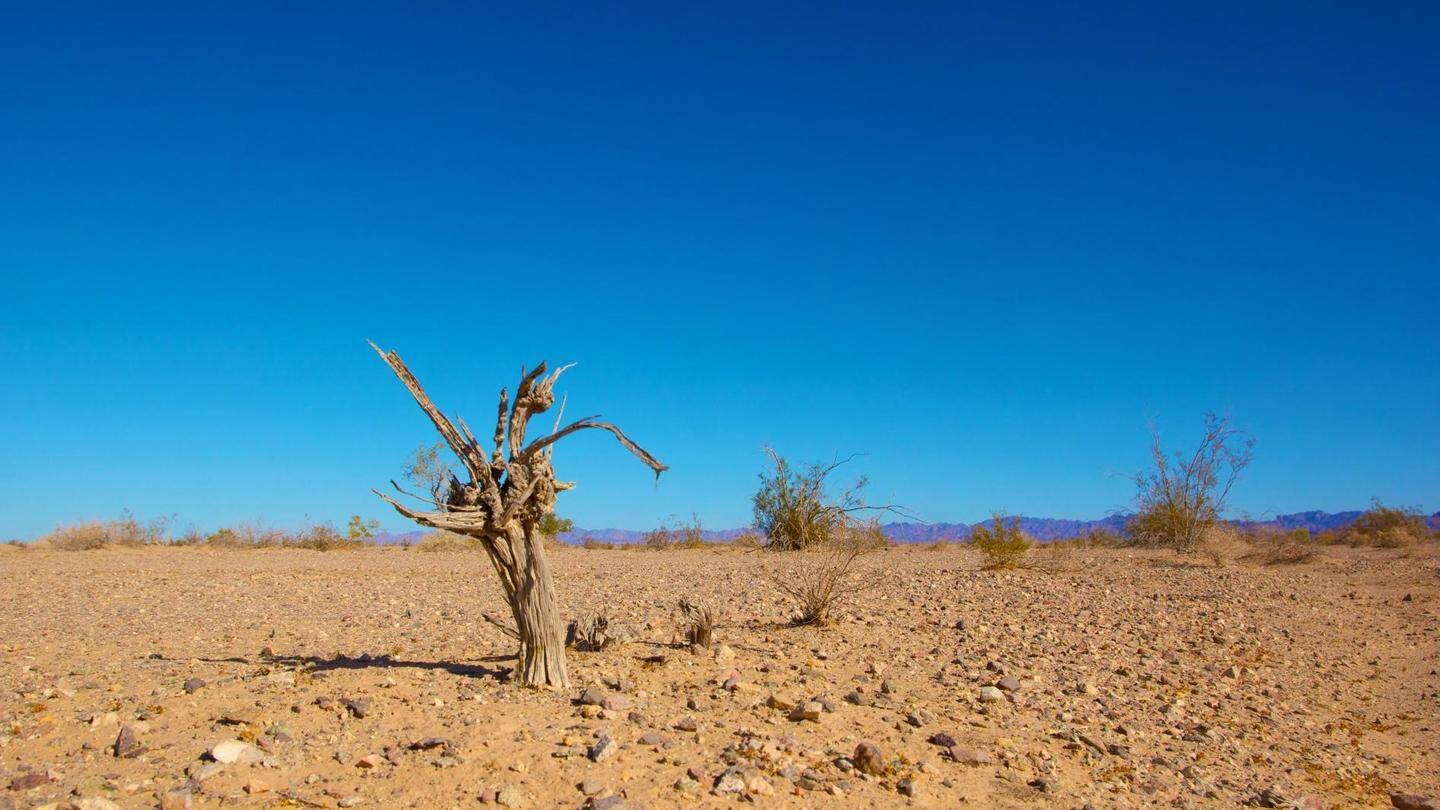
Hot again: 2020 sets yet another global temperature record
What's the story
Earth's rising fever hit or neared record hot temperature levels in 2020, global weather groups reported on Thursday.
While NASA and a couple of other measurement groups said 2020 passed or essentially tied 2016 as the hottest year on record, more agencies, including the National Oceanic Atmospheric Administration, said last year came in a close second or third.
Data
Difference in rankings is because of data gaps in Arctic
The difference in rankings mostly turned on how scientists accounted for data gaps in the Arctic, which is warming faster than the rest of the globe.
The agencies have varying temperature numbers because there are relatively few temperature gauges in the Arctic.
"It's like the film 'Groundhog Day.' Another year, the same story record global warmth," said Pennsylvania State University climate scientist Michael Mann.
Average global temperatures
2011-2020 was the warmest decade on record
World Meteorological Organization (WMO) surveyed five datasets and concurred that 2011-2020 was the warmest decade.
The warmest six years have all been since 2015, with 2016, 2019, and 2020 being the top three. The differences in average global temperatures among the three are indistinguishably small.
The average global temperature in 2020 was about 14.9 degree Celsius, 1.2 ( 0.1) above the pre-industrial (1850-1900) level.
Quote
Planet is expected to warm up due to carbon pollution
"As we continue to generate carbon pollution, we expect the planet to warm up. And that's precisely what we're seeing. We saw the heat waves. We saw the fires. We saw the (melting) Arctic," said NASA top climate scientist Gavin Schmidt.
Temperature
2016 and 2020 tie for the hottest year on record
NOAA said 2020 averaged 58.77 degree Fahrenheit (14.88 degree Celsius), a few hundredths of a degree behind 2016. However, NASA saw 2020 as warmer than 2016 but so close they are essentially tied.
The European Copernicus group called it an essential tie for the hottest year.
The WMO, the British weather agency, and Berkeley Earth's monitoring team reported 2016 ahead.
NOAA's statement
There has been acceleration in the rise of global temperatures
All monitoring agencies agree that the six warmest years on record have been since 2015.
Russ Vose, analysis branch chief at NOAA's National Centers for Environmental Information said, "Temperatures the last six or seven years hint at an acceleration in the rise of global temperatures."
"While temperature increases have accelerated since the 1980s, it's too early to discern a more recent acceleration," Schmidt said.
Information
Interesting data reveals stark difference in overall temperature increase
Earth has warmed 1.6 degree Fahrenheit (0.9 degrees Celsius) since 1942 when President-elect Joe Biden was born, and 1.2 degree Fahrenheit (0.6 degrees Celsius) since 1994, when pop star Justin Bieber was born, according to NOAA data.
United States
US smashed the record for most number of weather disasters
The United States, which had its fifth warmest year, smashed the record for the number of weather disasters that cost at least $1 billion with 22 of them in 2020.
The old record of 16 was set in 2011 and 2017. This was the sixth consecutive year with 10 or more billion-dollar climate disasters, with figures adjusted for inflation.
Quote
'Making peace with nature is the task of 21st century'
UN Secretary-General Antonio Guterres said on Twitter, "Last year's exceptional heat is yet another stark reminder of the relentless pace of climate change, which is destroying lives and livelihoods across our planet. Making peace with nature is the defining task of the 21st century."
Twitter Post
Guterres's tweet on the relentless pace of climate change
Yet another stark reminder of the relentless pace of climate change, which is destroying lives livelihoods across our planet.
— António Guterres (@antonioguterres) January 14, 2021
It can be reversed by making peace with nature, the defining task of the 21st century for everyone, everywhere. https://t.co/om4Y2U5PFp
Paris Agreement
Earth has now warmed 1.2 degree Celsius since pre-industrial times
Earth has warmed 1.2 degree Celsius since pre-industrial times and is adding another 0.2 degree Celsius a decade.
The planet is nearing an international warming threshold set in Paris in 2015, Vose and Schmidt said.
Nations of the world had set a goal of preventing at least 2 degree Celsius of warming, with a tougher secondary goal of limiting warming to 1.5 degree Celsius.
Quote
'Too late to avoid 1.5 degree Celsius above pre-industrial now'
Jason Furtado, University of Oklahoma meteorology professor said, "We cannot avoid 1.5 degree Celsius above pre-industrial now, it is just too late to turn things around. I also fear that the two degree Celsius threshold is slipping away too unless changes become much more immediate."